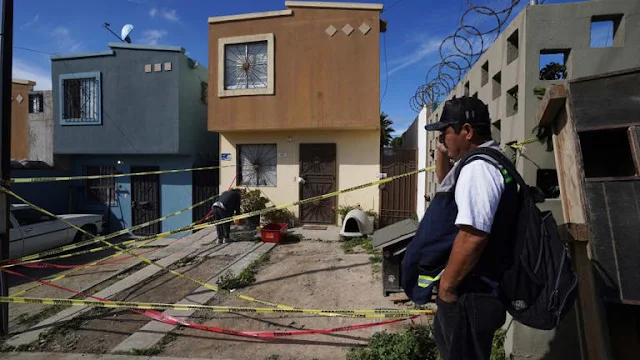Here's a revised version:
In 2023, Mexico witnessed the tragic deaths of at least five journalists, while Cuba and Venezuela saw numerous arbitrary arrests and instances of harassment. In Nicaragua, media workers were forced to flee due to escalating threats. These incidents highlight the pervasive challenges faced by journalists across Latin America, where press freedom is increasingly under threat. According to a joint report by Amnesty International and the Committee to Protect Journalists (CPJ), Mexico has been singled out as "the most dangerous country for the press in the Western Hemisphere."
In a recent CNNE interview, Francisco Cobos, a Mexican-American journalist at Univision, recounted a terrifying encounter with armed men in Tamaulipas on April 26. Despite being held at gunpoint and forced to stop his car, he managed to escape. Cobos emphasized, "There is no longer a place where you are safe."
Due to the risks involved, Cobos filed a complaint in McAllen, Texas, rather than in Mexico. Upon hearing of the incident, Mexican President Andrés Manuel López Obrador pledged to provide protection.
The CPJ report paints a grim picture of Mexico's press environment, noting it as having "the highest number of missing journalists globally," with at least 15 professionals in 2023. The country also recorded 561 aggressions against the press and the deaths of five journalists in the same year. According to CPJ, at least 43 journalists have been killed during López Obrador's administration, 47 during former President Enrique Peña Nieto's tenure, and 48 during former President Felipe Calderón's term. One of the most notable cases was the murder of journalist Lourdes Maldonado López in Tijuana in January 2022. Before her death, she directly appealed to López Obrador for protection during a public press conference.
Adding to Mexico's grim statistics, Roberto Figueroa, a journalist with the online portal "Acá en el Show," was murdered on April 26. Authorities believe the crime was related to his journalistic work.
Despite López Obrador's promises of security for journalists, his relationship with the press has been contentious. He criticized CNN en Español's Andrés Oppenheimer for his interview with Argentina's President Javier Milei, who had criticized López Obrador as "ignorant."
In Cuba, journalist Abraham Jimenez described how his reporting on the 2021 street protests led to threats, arbitrary interrogations, and house arrests. He eventually fled to Spain, stating, "They told me: 'We are tired of you, we are going to give you your passport, but if you don't leave the country, you are going to jail.' I didn't think twice, and I left."
According to Article 19's report "Cuba: Resistance in the Face of Censorship," from January to December 2023, there were 274 aggressions against activists and independent journalists. The Cuban government employs various tactics, including arrests and suppression of internet services, to intimidate reporters.
In Venezuela, journalist Edgar López highlighted the daily struggle against censorship and the consolidation of aggression patterns by the government. He noted that close to 4,000 journalists have emigrated from Venezuela in the last 20 years due to threats and restrictions on press freedom.
Ecuador faced a chilling incident on January 9, 2024, when hooded men stormed a live news program on TC Television in Guayaquil, holding journalists and staff hostage for hours. This incident reflects the deteriorating security context in the country, leading to the exile of communication workers who uncover corruption.
Across Latin America, political polarization has led to increased hostility toward journalism. Leaders, both left and right-leaning, have used social media to attack journalists and independent media, eroding a fundamental pillar of democracy in the region.

